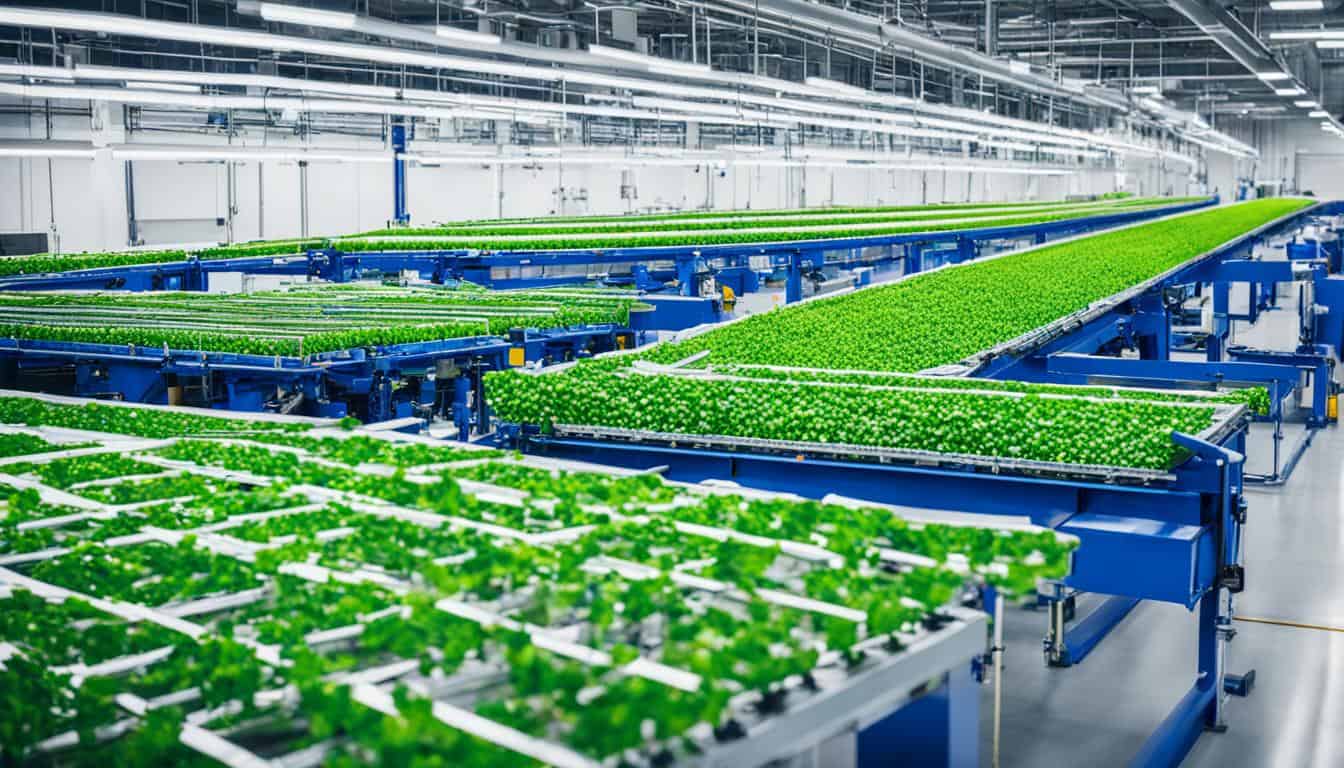Welcome! As we delve into the world of corporate responsibility and sustainability, I’m eager to share my insights on the subject. Companies today are stepping up, recognizing that their success isn’t solely dependent on financial performance. They’re embracing a new business model that prioritizes Environmental, Social, and Governance (ESG) criteria.
Through this approach, they’re creating long-lasting value that not only nurtures our planet but also our society. By weaving sustainable practices into the essence of their business, these corporations are redefining what it means to be successful. They’re contributing to sustainable growth while enhancing stakeholder value and, in many cases, driving innovation. This new era is marked by a commitment to sustainability and is fueled by ethical governance.
The impact of these practices doesn’t stop at the environment. A key component of corporate responsibility is the welfare of workers. By making sustainable choices, companies are also supporting the health and well-being of their employees.
Key Takeaways
- Corporate success today is not just about financial performance but also includes ESG criteria.
- Companies are integrating sustainability into their business operations, driving innovation, sustainable growth, and long-term stakeholder value.
- A strong commitment to sustainability and ethical governance underpins the new definition of corporate success.
- Worker welfare is an integral part of corporate responsibility.
- Through sustainable practices, companies positively impact both the environment and society.
The Evolution of Corporate Success: Environmental, Social, and Governance Factors
Times have changed, and so have the hallmarks of corporate success. While still crucial, financial performance now shares the stage with a trio of other compelling elements – environmental stewardship, social responsibility, and ethical governance. These make up the environmental, Social, and Governance (ESG) criteria that businesses are increasingly adopting and being evaluated on.
The Definitions and Importance of ESG Criteria
ESG criteria serve as a robust framework to assess a company’s commitment towards sustainable business practices. Each facet of ESG focuses on a unique aspect of corporate activity that collectively contributes to the long-term viability of a business. Not only do these criteria reflect well on a company’s commitment to good corporate governance, but they also represent essential risk management tools, especially in a world increasingly concerned with sustainable development.
Environmental Considerations in Business Operations
Any business’ impact on the environment is something that can’t be ignored. This includes both the company’s footprint on the natural environment and how effectively it manages and mitigates those effects. An environmentally sound approach to business involves the efficient utilization of energy, responsible waste management, and conservation of natural resources, among others. Not only does this confer a competitive advantage but also increases investor attraction towards environmentally conscientious businesses.
Corporate Social Responsibility and Its Impact on Society
Social Responsibility is businesses’ commitment to contributing to society’s betterment. It involves respectful and fair treatment of employees, fostering good relationships with stakeholders, supporting diversity, and making meaningful contributions to society. With an increasing consumer demand for businesses that prioritize societal welfare, social responsibility is no longer optional. The adoption of robust CSR initiatives not only drives regulatory compliance but also stimulates innovation, creating a win-win scenario for businesses and society alike.
Why Companies are Committing to Sustainability and Worker Welfare
In the contemporary corporate landscape, businesses are recognizing the essential connection between sustainability goals and worker well-being. With management values and strategic orientations that prioritize environmental and social responsibility, companies are laying the groundwork for not just achieving sustainability but fostering it.
Integral to this commitment to sustainability is a desire to create a positive impact on consumers, ensure the longevity of their workforce, and uphold ethical practices within their operations. Central to these ethical practices are respect for labor rights, preservation of local communities, fair trade, sustainable sourcing, and building responsibly.
“Businesses are realizing that convergence of sustainability and worker welfare is not just beneficial, but is now a necessary goal in today’s evolving marketplace. It’s a mutual relationship where the well-being of workers directly influences the sustainable practices, ultimately affecting the company’s bottom-line.”
At the heart of these sustainable practices lies the complex and vast supply chain that forms an integral part of many businesses. Promoting sustainable practices within the supply chain presents its set of challenges but also brings forth considerable rewards.
- Prioritizing worker well-being can increase productivity and morale, thereby boosting the supply chain’s overall efficiency.
- Practicing fair trade means businesses ensure that their products do not contribute to unfair wages or unsafe working conditions.
- Responsible sourcing means that the materials used in products are traceable, ensuring they are sourced ethically and sustainably.
In conclusion, the commitment to sustainability and worker welfare emerges from a desire to foster a positive impact on consumers, attract and retain engaged employees, and uphold ethical practices within the workplace. By focusing on sustainable sourcing and building responsibly, companies can ensure fair trade, respect for labor rights, and preservation of local communities, which are central to strengthening their dedication to worker welfare.
Examples of Ethical Supply Chain Initiatives
As we look to build a more sustainable and equitable future, the role of ethical supply chain initiatives has become indisputable. These initiatives, employed by profit-minded companies, embody a commitment to responsible sourcing, fair wages, and safe working conditions. By implementing such measures, businesses actively work toward eradicating labor and human rights violations within their supply chains.
A prime example of such an initiative is the rigorous audit of suppliers. Companies that value sustainable sourcing invest time and resources into thoroughly checking supplier practices. This ensures that partnered businesses also respect their workers, pay fair wages, and provide safe working conditions.

Another widely implemented initiative is the creation and enforcement of strict supplier codes of conduct. These documents provide guidelines on fair labor practices and set the standard for human rights within the organization.
Companies show their commitment to creating a more just and sustainable world by prioritizing ethical considerations in their procurement processes.
To give a clearer picture of how ethical supply chain initiatives work, here is a detailed table that summarizes some common strategies employed by businesses:
| Initiative | Description | Benefits |
|---|---|---|
| Supplier Audits | Routine evaluation of supplier practices to ensure adherence to corporate standards of labor rights and workplace safety | Promotes consistent ethical behavior across the supply chain and aids in identifying and addressing compliance issues |
| Supplier Codes of Conduct | Set of guidelines and requirements that suppliers must adhere to in terms of labor and human rights practices | Ensures all suppliers uphold the same ethical standards, creating uniformity and promoting fairness within the supply chain |
| Fair Wage Assurance | Policies that secure fair compensation to all workers in the supply chain | Supports economic growth and equality by ensuring that workers receive adequate compensation |
| Safe Working Conditions | Policies and practices that prioritize worker safety and well-being | Enhances worker productivity, reduces risks of workplace accidents, and promotes overall worker satisfaction |
- Supplier Audits: A thorough check on the operations of suppliers to ensure that they also meet the same standard of fair labor practices. This includes offering their workers fair wages, maintaining safe working conditions, and exercising non-discriminatory policies.
- Supplier Codes of Conduct: These are guidelines that layout a company’s expectation from its suppliers in terms of labor, safety, environmental impacts, and ethical business practices.
- Fair Wage Policies: Companies follow or set a minimum wage benchmark to ensure that their workers in the supply chain are paid fairly.
- Safe Working Conditions: Companies make necessary provisions to safeguard the health and safety of their workers. This can range from providing safety equipment to enforcing strict safety procedures.
I strongly believe that establishments that prioritize ethical considerations in their procurement processes are not only securing their business futures but also leading the way in creating a more just and sustainable world.
Sustainable Products Supporting Worker Welfare
In the realm of sustainable business operations, a significant aspect revolves around the development of sustainable products. More than just marketing claims, these require a fundamental commitment to sustainability that covers every stratum of production – from the raw materials to the people behind the registry.

Ensuring Safe Working Conditions and Fair Wages
A crucial constituent of this concept is the provision of safe working conditions and fair wages across the complete supply chain. A genuine commitment to promoting sustainable practices means that businesses no longer perceive profit and worker welfare as contradicting objectives. Instead, they acknowledge the necessity of guaranteeing safety measures, decent working hours, and equitable compensation as part of their responsibility toward their workforce.
Promoting Health and Well-being in the Workplace
Furthermore, supporting worker welfare extends to encompass initiatives aimed at promoting health and well-being in the workplace. It’s not just about preventing accidents or upholding minimum labor rights; comprehensive sustainability metrics also encapsulate the quality of life that the employees lead. Instituting programs that contribute to their physical, mental, and financial health underscores the company’s holistic approach toward worker welfare.
Environmental Impact and Sustainable Business Practices
While catering to the social elements, sustainable product development doesn’t lose sight of the environmental considerations. Businesses that hold environmental consciousness as a core operational value actively work to reduce waste, minimize their carbon footprint, and foster eco-friendly procedures. These steps, while improving their sustainability standing, also play an integral role in establishing a sustainable supply chain.
In the grand schema, the promotion of sustainable practices, social responsibility, and environmental consciousness work together to manifest a brand of business that truly personifies sustainability. By ensuring that their products are comprehensively sustainable, businesses can realize the objective of becoming a truly sustainable enterprise, boasting products that are not just profitable but also ethical and environmentally responsible.
Stakeholder Expectations and the Role of Transparent Reporting

As business models rapidly evolve toward sustainability, the role of stakeholder engagement and transparent reporting in setting corporate policies becomes increasingly impactful. This growing emphasis upon ethical and sustainable practices within corporations is reflected through stringent codes of conduct and supply chain practices toward achieving their sustainability targets. This section looks at the pivotal role of stakeholder engagement in influencing corporate policies and the significance of transparency in sustainability reporting.
The Impact of Stakeholder Engagement on Corporate Policies
Enterprises geared toward sustainability are witnessing a significant shift in strategy and business models as stakeholder engagement elevates its influence on corporate policies. These stakeholders, inclusive of customers, employees, and investors, pivot corporations toward preemptive sustainability efforts in line with global standards.
Stakeholder engagement serves as the backbone to encourage corporations to revisit and align their codes of conduct and supply chain practices toward sustainability objectives.
This reaffirmation ensures corporate policies are not only robust and congruous with their industry but, more importantly, responsive and adaptive to evolving sustainability norms, recognizing the linkage between sustainable practices and long-term economic viability.
Transparency in Sustainability Reporting and Its Benefits
To stay competitive in this transformative business environment, corporations need to practice transparency in their sustainability reporting. By doing so, they are held accountable for the commitments they have made, boosting trust among stakeholders.
Transparent sustainability reporting enhances a corporation’s reputation, and this transparency extends to its supply chain practices, showcasing its proactive and strategic approach to managing environmental and social risks.
| Transparency Aspect | Benefit |
|---|---|
| Accountability | Encourages responsible sustainability efforts and adherence to ethical codes of conduct. |
| Stakeholder Trust | Builds credibility and fosters stronger relationships with stakeholders. |
| Reputation Enhancement | Boosts corporate image, attracting potential investors and customers. |
| Supply Chain Management | Highlights commitment to implementing sustainable supply chain practices. |
Therefore, transparent sustainability reporting is indispensable as corporations aim to align their interests with those of their stakeholders, ensuring a harmonious and significant sequence of sustainability actions.
Technological Innovation as a Driver for Sustainable Practices
Futuristic breakthroughs are reshaping the realm of sustainable practices, with technological innovation serving as the key enabler. Companies worldwide are leveraging these advancements to bolster efficiency, reduce emissions, and fulfill their commitment to a more sustainable future. By embracing cutting-edge technologies, businesses can deploy an array of sustainable practices, leading the charge in environmental stewardship and simultaneously growing their bottom line. Let’s delve into the transformative power of technology in driving sustainability.

One of the most powerful tools of this digital revolution is the advent of clean energy solutions. Innovations such as solar power, wind turbines, and other renewable energy sources have provided industries with green alternatives to traditional fossil fuels. These sustainable energy sources not only slash businesses’ carbon footprint but also offer long-term cost efficiencies, thereby creating a win-win situation.
Apart from energy generation, technological advancements are also helping businesses reduce greenhouse gas emissions in their operations. Forward-thinking companies are harnessing these advancements to decrease their carbon emissions, taking an active role in combating climate change while attaining operational efficiency.
To illustrate the impact of these technological advancements, let’s consider the following examples of innovative technologies driving sustainability:
| Technology | Implication on Sustainability |
|---|---|
| Artificial Intelligence and Machine Learning | AI and ML can optimize operations, reduce waste, and predict trends, thereby improving resource management. |
| Blockchain | Blockchain can enhance transparency within supply chains, ensuring products are sourced and produced sustainably. |
| Internet of Things (IoT) | IoT can monitor energy consumption and suggest improvements, leading to increased energy efficiency. |
| Geothermal Energy | It offers a sustainable and constant power source, minimising the dependence on fossil fuels. |
| Carbon Capture Technology | This technology captures and stores carbon dioxide emissions, preventing them from contributing to global warming. |
As the world embraces a sustainable future, continued advancements in technology will be crucial in helping businesses reduce their environmental impact, optimize resource use, and foster sustainable practices. The transformation brought about by technology is truly a game-changer, empowering businesses to embody sustainability in every business decision for the betterment of our planet.
Sustainable Products: The Intersection of Eco-Friendliness and Human Rights
As we face pressing environmental concerns and constantly evolving social landscapes, the importance of eco-friendly and socially conscious businesses continues to mount. Sustainability takes center stage as companies strive to balance profitability and corporate citizenship – a task requiring meticulous attention to both environmental and social performance. It’s no longer just about responsible sourcing or selling sustainable products; it’s about threading human rights advocacy into the very fabric of their operations.
Developing, manufacturing, and selling products that are both eco-friendly and respect human rights exemplify ethical business practices and a strong commitment to the health of our planet and its inhabitants. Undeniably, these efforts are not exclusively altruistic. By adopting such an undertaking, companies are not only doing their part for the environment and society but also enhancing their corporate image, setting themselves apart from competitors and aligning with the expectations of increasingly conscientious consumers.
“The convergence of eco-friendliness and human rights within sustainable products underscores a company’s role as a responsible corporate citizen.”
Here, we delve into the various aspects of sustainable product development that improve the environment, respect human rights, and uplift the company’s environmental and social performance:
- Resource-efficient product design: Designing products to use fewer resources, emit fewer pollutants, and generate less waste.
- Responsible sourcing involves promoting fair trade, decent working conditions, and respect for the environment in the procurement process.
- Eco-friendly manufacturing: Embracing cleaner production technologies that reduce environmental harm.
- Recycling and upcycling: Prioritizing circular economy principles in product design and end-of-life management strategies.
Now, let’s wrap this section with a comprehensive overview of sustainable product attributes that embody the intersection of eco-friendliness and human rights:
| Attribute | Description |
|---|---|
| Eco-friendly | Products designed and manufactured to minimize environmental damage, often using renewable resources and sustainable sourcing practices. |
| Support for Human Rights | Products sourced, manufactured, and distributed in ways that respect individuals’ rights, promote fair trade, and ensure decent working conditions. |
| Improves Social and Environmental Performance | Products designed to leave a positive impact on society and the environment, contributing to the company’s overall sustainability performance. |
| Exemplifies Responsible Corporate Citizenship | Products that represent a company’s commitment to operating in a socially responsible manner, supporting its community, and contributing positively to society at large. |
Corporate Leadership: Steering Towards a Culture of Responsibility
Corporate leadership plays a pivotal role in the quest for sustainability. By fostering a culture of responsibility that prizes worker welfare and ethical practices, leaders can inspire transformative change within their organizations. The path to sustainability often involves reevaluating internal cultures and management systems, focusing on employee engagement, and weaving environmentally beneficial behaviors into everyday practices.
Fostering a Culture that Embraces Worker Welfare
A culture that truly values the welfare of workers is a cornerstone of corporate responsibility and sustainability. Under the guidance of visionary leadership, organizations can implement policies that promote safe and equitable working conditions, fair wages, and opportunities for growth and development. Workers, when placed at the heart of a company’s mission, become driving forces behind its sustainability journey.
“The welfare of our workers is not just an ethical obligation – it’s a crucial aspect of our sustainability efforts.”
Leadership’s Role in Setting Sustainability Goals and Achieving Them
Leadership holds the reins from outlining sustainability goals to ensuring their achievement. With their ability to inspire action and yield cooperation, leaders can effectively spearhead the transition towards sustainable operations. In addition, they are instrumental in instilling environmental values and modeling green behaviors that resonate across the organization.
| Leadership Quality | Role in Sustainability |
|---|---|
| Inspirational | Motivates employees to adopt sustainable practices |
| Visionary | Sets clear and attainable sustainability goals |
| Accountable | Takes responsibility for achieving sustainability goals |
| Model Behavior | Demonstrates green behaviors for employees to emulate |
Embarking on a sustainability journey requires more than implementing green operations—it requires fostering a culture that values worker welfare and upholds ethical practices. As the architects of corporate culture, leaders can steer their organizations towards a more sustainable future, creating prosperity not just for their companies but also for their workers and the planet.
Reinforcing Corporate Responsibility through Community and Client Relations
Corporate Social Responsibility extends far beyond a company’s internal operations. It reaches out into the wider world, affecting community relations, client relations, and sustainability. Social accountability and corporate citizenship are not just buzzwords; they represent real and profound commitments that organizations must make if they wish to excel in today’s corporate landscape.
Let’s explore how businesses can strengthen their corporate social responsibility (CSR) through programs that enhance community and client relations.
“Corporate responsibility is not a mere font of altruism; it is about creating tangible benefits for society while also contributing to the company’s bottom line and overall mission. It is not about doing good; it is about doing well by doing good.”
| Corporate Social Responsibility Components | Aspects it Enhances |
|---|---|
| Community Relations | Engaging in community-building activities, investing in local societies |
| Client Relations | Implementing holistic CSR programs catered to client expectations and needs |
| Sustainability | Fulfilling social accountability, enhancing environmental sustainability initiatives |
| Corporate Citizenship | Strengthening connection between the corporation, its clientele, and the communities |
Each component of corporate social responsibility plays a unique role in fostering a corporate culture that fully encompasses the values of economic, ecological, and social sustainability. Businesses must learn how to balance these different aspects so they can nurture a corporate environment that is both socially accountable and efficient.
Conclusion on Sustainable Products Supporting Worker Welfare
As we look forward to the future of sustainable business, the importance of harmonious balance between profitability, ethical standards, and innovation is more evident than ever. Such balance is instrumental in propelling companies towards greater commitments to worker welfare and environmental preservation. It’s not just about increasing the bottom line anymore. The real measure of business success has evolved, now going beyond financial gains and encapsulating meaningful contributions to a healthier, more equitable society.
The Future of Sustainable Business: Balancing Profitability and Ethical Practices
I firmly believe that businesses must find a sweet spot between profit-making and preserving an ethical, sustainable posture. Striking this balance becomes increasingly crucial as we tread further into the future. And, let’s be clear: it’s not just about doing what’s right; it’s about shaping a corporate responsibility model that guarantees survival and prosperity in an ever-evolving marketplace.
Importance of Continuing to Innovate in Support of Worker Welfare
Innovation has been and will remain a powerful means of supporting worker welfare. By embracing transformative ideas and technologies, companies can foster better working conditions, promote fair trade, and ensure labor rights. This is the future of sustainability: a continuous pursuit of eco-friendly tactics and innovative strategies to craft an ethically conscious future with businesses at the helm. After all, organizations are more than mere units of production; they are community builders, societal pillars, and environment stewards.





Leave a Reply